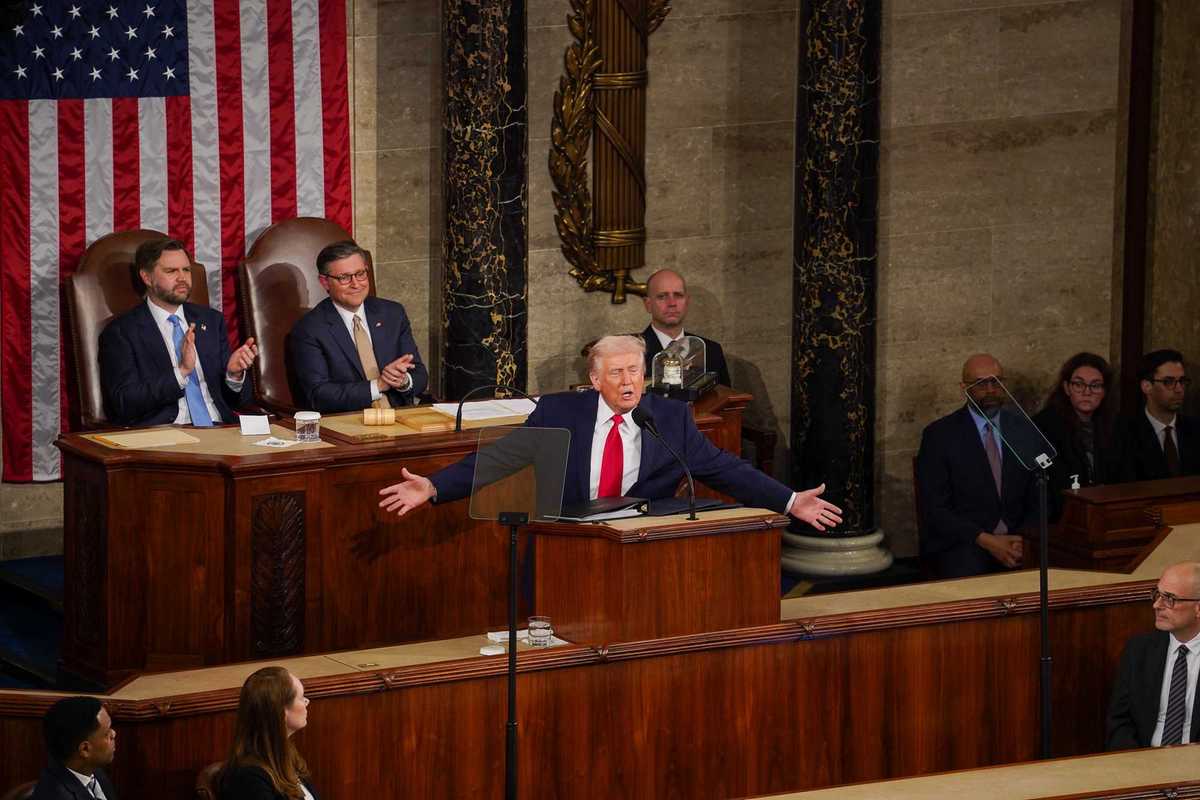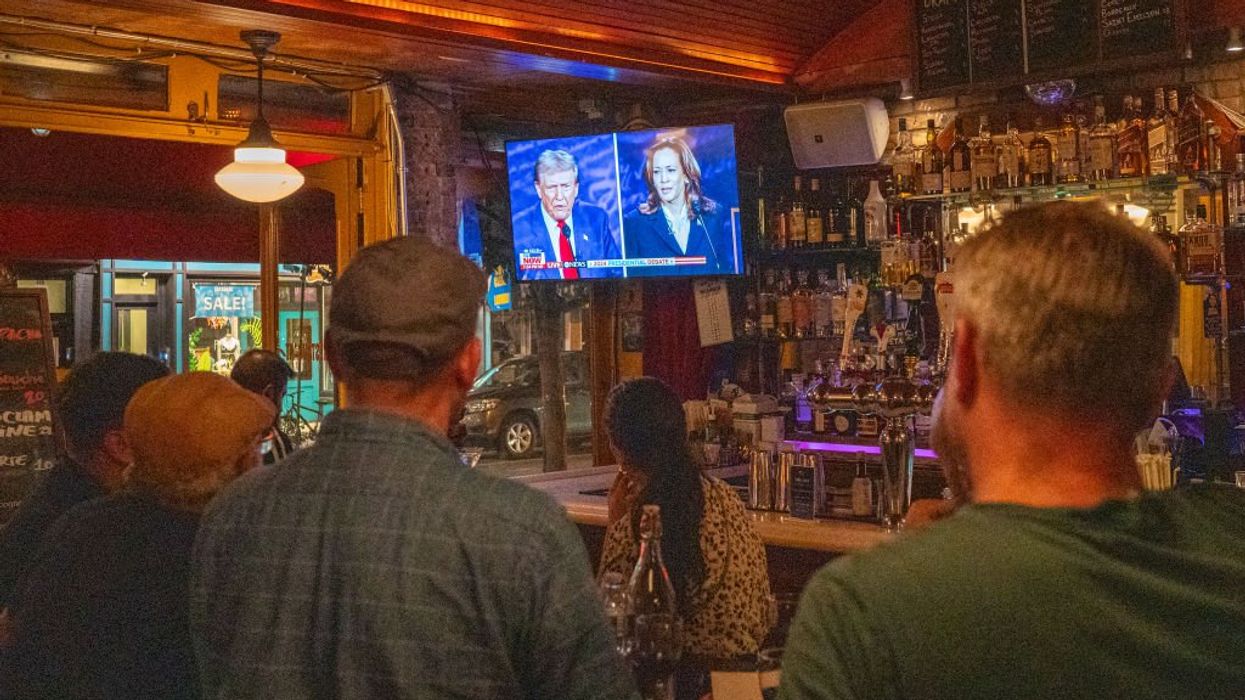Our question: What three things would you prioritize to reverse divisiveness and alienation trends and increase social cohesion in the United States?
This question resonated with our readers based on the number of responses we received.
Not surprisingly the focus was as different as we are as Americans. Some focused on how the government works and how to improve elections. Some focused on how citizens can be better informed (the Fairness Doctrine was cited by many) and become involved. And others offered suggestions on how to create better understanding that gives us the ability to come together as a nation. Yet more pointed to civics education for students and adults. Here are a few of the many responses we received, and some have been edited for length.
As a high school student, I believe that the social cohesion of tomorrow starts with the youth of today. Keeping this perspective in mind, here are my three main points: 1. Civics education is vital to keeping our nation together. I am a firm believer that our country lacks balanced, equitable civics education. I actually wrote a speech about this subject recently. 2. Beyond public schools, we need to prioritize extracurricular activities that encourage healthy public speaking habits, like a speech, debate and Constitution team. 3. Kids must get involved in local and regional initiatives to fight for the opportunity to talk to people of differing opinions. From my personal experience, I have not been encouraged by many teachers to reach out to people I disagree with, and that's something we need to fight for. Robert Hamblin
1. Shared experiences among diverse groups. This is certainly not a new concept, but I think the conversation around this is often shallow. Shared experiences — such as learning a new hobby — among diverse groups of people are essential to social cohesion. However, a few challenges arise; namely that cities are often so segregated that it can be a challenge to actually bring diverse people together.
2. Spaces to gather. The second thing that is then needed are welcoming spaces such as libraries, parks, community centers and other places — that are high-quality, convenient and accessible venues. These spaces must extend an invite to all — from the most affluent to the most vulnerable, and to people from across the spectrum of political ideologies. In light of the pandemic, we also recognize that digital spaces are also becoming increasingly important.
3. Amplifying stories (people), initiatives and ideologies that embrace understanding others, bridging & belonging, and civic health. Shamichael Hallman
Three things that I would prioritize are:
1.Establishing a basic needs agenda in our country.
2.Teaching courses in creolization theory.
3.And teaching people how to develop a “Founder’s mentality” when looking at this nation’s development.
Pedro Silva
I’d love to think of ways to get people out of their homes/off their screens and working on projects in the community together for a common good.
Recently I went to my mother’s house and my aunt was there. She and I are about as far apart as two people can be on politics and she tends to be a bit tone deaf so it’s hard to just “put politics aside” or “agree to disagree.” But my mother had a 1,000-piece jigsaw puzzle out and we all worked together on it and it was the most I have peacefully engaged with her in a while. I can’t stop reflecting on it.
A jigsaw puzzle is a small thing, but could we replicate this with projects like building a garden, cleaning up a park, habitat for humanity-style building, etc.? It would be a double win for the community if we could fix a concrete problem in our towns and also build cohesion around it.
Mary K. Flynn
I love the question as social cohesion is fresh on my mind after reading Robert Putnam’s 2001 article on social capital. I think these steps would help:
- Focusing on what we aspire towards — the shared vision and shared values.
- Integrating Social Trust building dialogues into existing structures rather than relying on people to join new groups.
- Making explicit our intentions to use these dialogues and techniques because we believe we can achieve this vision together.
David M Green
First priority: Make news consumption better. I get the feeling my own news consumption does not tell me what I need to know in order to be an effective member of society, and I wonder what I'm missing. And most other people's news consumption doesn't tell them what they need to know either. Some schools are now teaching students to solve real-world problems as part of their curriculum; I wonder whether we also need to learn problem-solving techniques from our news.
Second priority: Make voting systems better. Maybe this means less partisan. I'm curious about systems like final-five voting.
Third priority: Ask a wide variety of people what they want us to prioritize. Even ask this question to people who are unwilling to participate in a dialogue (which I'm guessing is most people) by doing surveys of the general public.
Cobie Delespinasse
1. Breaking up media monopolies/ bring back the Fairness Doctrine.
2. Campaign finance reform.
3. Addressing income inequality with a focus on rural communities.
George Balella
There is one thing I would do three times over and that is continue to find ways to get the word out about all the good work that’s happening across the country. I know so many people that are talking about leaving the U.S. because they can’t stand it. And I want people to stay and fight. So maybe the second thing is to figure out how to get people in the streets to say they can’t deal with inaction on voting rights. Where is the outrage?
Victoria Hattersly
The public is increasingly alarmed about the country’s divisions and the press in demonstrating greater interest in stories of bridging divides. Therefore, I’d prioritize these things, all aimed at organizations within the movement:
1.Step up PR work to bring visibility to the movement and successes within it to the press, both local and national.
2.Build programming around “strange bedfellows” who are engaging with each other in a positive, constructive way.
3.Support work to rein in gerrymandering.
There is only one thing I would prioritize to reverse the trends of social divisiveness and alienation. I work in the intersection of religious freedom and LGBT concerns with people with strong convictions on every “side” — and yet, every day I find reason to be hopeful for our country and for all of us as human beings. My one recommendation for all of us:
Make a friend who is very different from you.
Marian Edmonds-Allen
The three strategies below, especially if pursued simultaneously, would help reverse debilitating polarization and promote social cohesion.
1. Support solutions and possibilities. Create a new independent government agency, the National Endowment for Resilience and Cohesion, and/or a public private partnership with a similar mission and substantial resources that would support a range of activities, including 1) funding national, state and local efforts to tackle polarization, build capacity around solutions-oriented processes and policies (like hiring chief cohesion officers in government, business and Hollywood), and provide technical assistance, training, tools and curricula incorporating evidence-based research on how best to depolarize and promote cohesion; 2) funding creative projects to generate content that imagines and makes tangible what a successful multiracial pluralistic America would look and feel like; and 3) funding or incentivizing the development of new apps and games that would reward prosocial behaviors.
2. Change behavioral norms and practices. Launch a high profile national campaign targeting government, media, entertainment, business, educational institutions and civil society to do their part to strengthen our democracy and repair our frayed civil fabric. Participants would pledge to adhere to a new code of conduct that reduces polarization and othering and emphasizes our shared fates and common aspirations (like a LEED certification equivalent for social cohesion). While there are smaller efforts of this type underway now, none are gaining the needed traction. The goal would be to synergize them, get huge uptake with an influencer strategy and sign ons from major players in all the key sectors, and generate pressure to take the pledge.
3. Make service cool and accessible for all ages. Scale and develop new, more flexible types of national and community service opportunities that would engage people across the age spectrum, from elementary school students to the elderly. Infuse them with a bridging rather than a charity mindset. Create an accompanying curriculum that fosters curiosity and empathy, emphasizes human dignity, and encourages deep listening across differences of all kinds, including identity, ideology and geography. Prioritize placements that offer participants insight, preferably gained by living in a new environment, into experiences that differ from their own that help overcome segregation, othering and racism.
Ideally, the combination of government and private sector resources and engagement, meaningful experiences across differences happening at scale all over the country, and an impactful public campaign would create enough “surround sound” to jolt Americans into a new way of being and thinking, usher in new behavioral norms, create new cohesion incentives that compete with entrenched polarization ones, and reach a positive tipping point for our country. Suzette Brooks Masters
My first priority for those wishing to defend and strengthen democracy would be an effort to promote much broader public awareness of the importance of protecting the rights and interests of those on the losing side of democratic elections. Democracy cannot function as a winner-take-all system in which the winners are able to force their opponents to publicly embrace the winners' beliefs. It can also not be a political spoils system in which winners unfairly redistribute wealth and status toward their political supporters. If citizens (as is too often now the case) believe that elections are battles that they absolutely, positively can't afford to lose, then democracy is doomed. All citizens in a democracy must be assured that, regardless of an election's outcome or a judicial decision, they will continue to have a secure and valued place in society.
This raises a second priority, the cultivation of a much more diverse diversity — one that spans, rather than stops, at the political divide. The defense of diversity must go beyond the coalition building imperative behind "big tent" politics and embrace the principles of mutual respect, tolerance, and individual freedom that allow people from different political coalitions with very different, deeply held belief systems to peacefully live together in mutually supportive ways.
Finally, I would encourage us all to do much more to resist what I call bad-faith actors — those who, for a variety of reasons, deliberately use sophisticated and deceptive tactics to inflame our hyper-polarized politics and, thereby, advance their narrow, selfish interests. Such actors include, for example, inflammatory media, foreign provocateurs, and hate-mongering political figures. We can't let them lure us into self-righteous information bubbles that prevent us from seeing the humanity of our fellow citizens or the things we are doing that contribute to our society's deep divisions. Guy Burgess




















U.S. Secretary of State Marco Rubio delivers a keynote speech at the 62nd Munich Security Conference on Saturday, Feb. 14, 2026, in Munich, Germany.
Marco Rubio is the only adult left in the room
Finally free from the demands of being chief archivist of the United States, secretary of state, national security adviser and unofficial viceroy of Venezuela, Marco Rubio made his way to the Munich Security Conference last weekend to deliver a major address.
I shouldn’t make fun. Rubio, unlike so many major figures in this administration, is a bona fide serious person. Indeed, that’s why President Trump keeps piling responsibilities on him. Rubio knows what he’s talking about and cares about policy. He is hardly a free agent; Trump is still president after all. But in an administration full of people willing to act like social media trolls, Rubio stands out for being serious. And I welcome that.
But just because Rubio made a serious argument, that doesn’t mean it was wholly persuasive. Part of his goal was to repair some of the damage done by his boss, who not long ago threatened to blow up the North Atlantic alliance by snatching Greenland away from Denmark. Rubio’s conciliatory language was welcome, but it hardly set things right.
Whether it was his intent or not, Rubio had more success in offering a contrast with Vice President JD Vance, who used the Munich conference last year as a platform to insult allies and provide fan service to his followers on X. Rubio’s speech was the one Vance should have given, if the goal was to offer a serious argument about Trump’s “vision” for the Western alliance. I put “vision” in scare quotes because it’s unclear to me that Trump actually has one, but the broader MAGA crowd is desperate to construct a coherent theory of their case.
So what’s that case? That Western Civilization is a real thing, America is not only part of it but also its leader, and it will do the hard things required to fix it.
In Rubio’s story, America and Europe embraced policies in the 1990s that amounted to the “managed decline” of the West. European governments were free riders on America’s military might and allowed their defense capabilities to atrophy as they funded bloated welfare states and inefficient regulatory regimes. Free trade, mass migration and an infatuation with “the rules-based global order” eroded national sovereignty, undermined the “cohesion of our societies” and fueled the “de-industrialization” of our economies. The remedy for these things? Reversing course on those policies and embracing the hard reality that strength and power drive events on the global stage.
“The fundamental question we must answer at the outset is what exactly are we defending,” Rubio said, “because armies do not fight for abstractions. Armies fight for a people; armies fight for a nation. Armies fight for a way of life.”
I agree with some of this — to a point. And, honestly, given how refreshing it is to hear a grown-up argument from this administration, it feels churlish to quibble.
But, for starters, the simple fact is that Western Civilization is an abstraction, and so are nations and peoples. And that’s fine. Abstractions — like love, patriotism, moral principles, justice — are really important. Our “way of life” is largely defined and understood through abstractions: freedom, the American dream, democracy, etc. What is the “Great” in Make America Great Again, if not an abstraction?
This is important because the administration’s defenders ridicule or dismiss any principled objection critics raise as fastidious gitchy-goo eggheadery. Trump tramples the rule of law, pardons cronies, tries to steal an election and violates free market principles willy-nilly. And if you complain, it’s because you’re a goody-goody fool.
As White House Deputy Chief of Staff Stephen Miller said not long ago, “we live in a world … that is governed by strength, that is governed by force, that is governed by power. These are the iron laws of the world that have existed since the beginning of time.” Rubio said it better, but it’s the same idea.
There are other problems with Rubio’s story. At the start of the 1990s, the EU’s economy was 9% bigger than ours. In 2025 we were nearly twice as rich as Europe. If Europe was “ripping us off,” they have a funny way of showing it. America hasn’t “deindustrialized.” The manufacturing sector has grown during all of this decline, though not as much as the service sector, where we are a behemoth. We have shed manufacturing jobs, but that has more to do with automation than immigration. Moreover, the trends Rubio describes are not unique to America. Manufacturing tends to shrink as countries get richer.
That’s an important point because Rubio, like his boss, blames all of our economic problems on bad politicians and pretends that good politicians can fix them through sheer force of will.
I think Rubio is wrong, but I salute him for making his case seriously.
Jonah Goldberg is editor-in-chief of The Dispatch and the host of The Remnant podcast. His Twitter handle is @JonahDispatch.